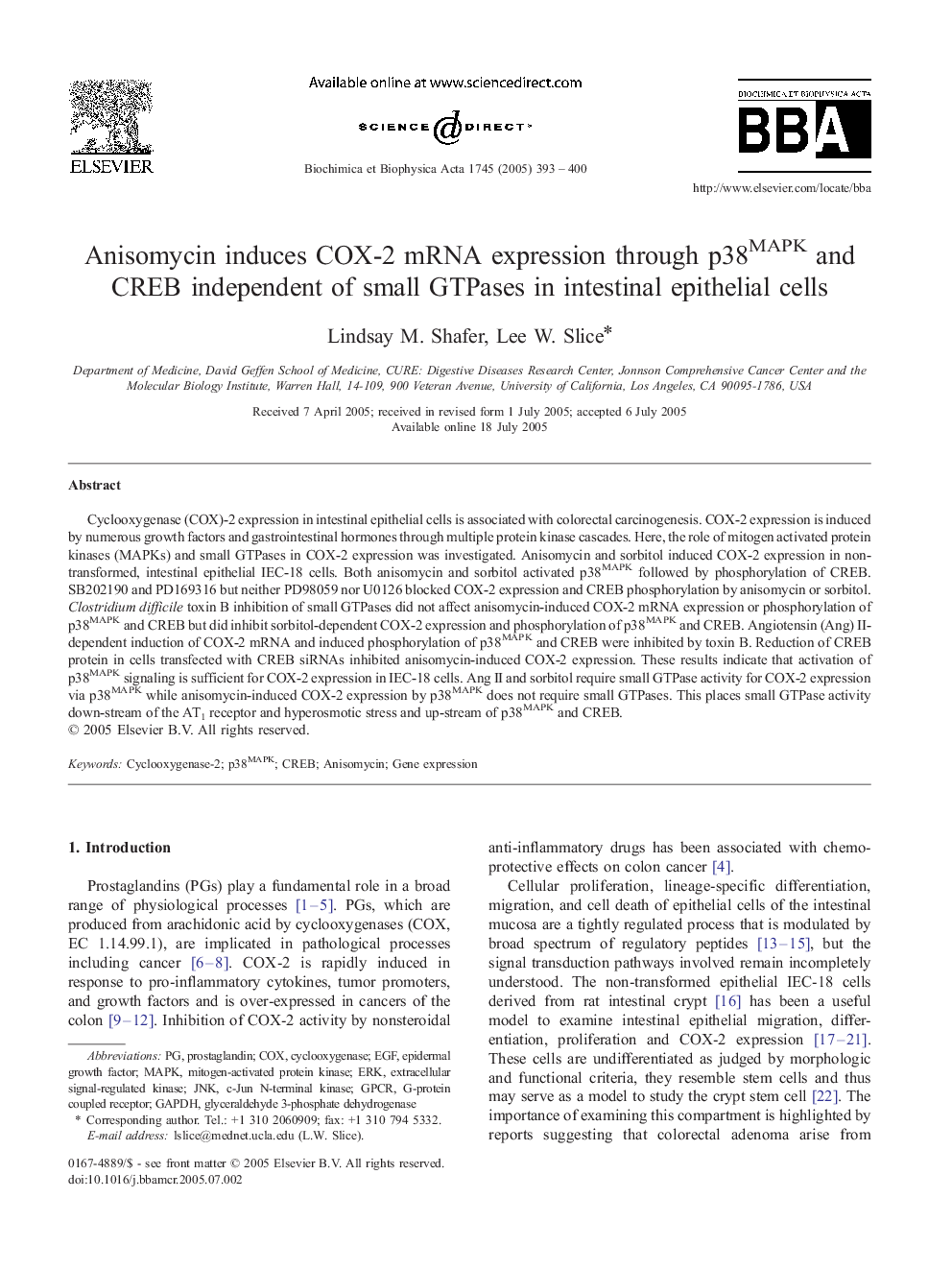| Article ID | Journal | Published Year | Pages | File Type |
|---|---|---|---|---|
| 10803185 | Biochimica et Biophysica Acta (BBA) - Molecular Cell Research | 2005 | 8 Pages |
Abstract
Cyclooxygenase (COX)-2 expression in intestinal epithelial cells is associated with colorectal carcinogenesis. COX-2 expression is induced by numerous growth factors and gastrointestinal hormones through multiple protein kinase cascades. Here, the role of mitogen activated protein kinases (MAPKs) and small GTPases in COX-2 expression was investigated. Anisomycin and sorbitol induced COX-2 expression in non-transformed, intestinal epithelial IEC-18 cells. Both anisomycin and sorbitol activated p38MAPK followed by phosphorylation of CREB. SB202190 and PD169316 but neither PD98059 nor U0126 blocked COX-2 expression and CREB phosphorylation by anisomycin or sorbitol. Clostridium difficile toxin B inhibition of small GTPases did not affect anisomycin-induced COX-2 mRNA expression or phosphorylation of p38MAPK and CREB but did inhibit sorbitol-dependent COX-2 expression and phosphorylation of p38MAPK and CREB. Angiotensin (Ang) II-dependent induction of COX-2 mRNA and induced phosphorylation of p38MAPK and CREB were inhibited by toxin B. Reduction of CREB protein in cells transfected with CREB siRNAs inhibited anisomycin-induced COX-2 expression. These results indicate that activation of p38MAPK signaling is sufficient for COX-2 expression in IEC-18 cells. Ang II and sorbitol require small GTPase activity for COX-2 expression via p38MAPK while anisomycin-induced COX-2 expression by p38MAPK does not require small GTPases. This places small GTPase activity down-stream of the AT1 receptor and hyperosmotic stress and up-stream of p38MAPK and CREB.
Keywords
Related Topics
Life Sciences
Biochemistry, Genetics and Molecular Biology
Biochemistry
Authors
Lindsay M. Shafer, Lee W. Slice,
